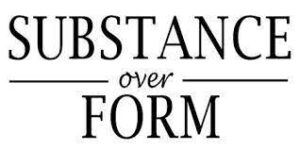For a newly appointed boss or company owner, managing a workforce may be a foreign experience. You, as the employer, require clarity regarding your obligations and those of your employees. Read the piece to find out.
What is the duty of your organization to its workers?
When an employee joins a company, they have certain expectations, and in many cases, employers have to meet those needs. The ability of a new business to live up to employee expectations leaves a lasting impression on potential hires. Furthermore, an organization’s employer brand may determine its success or failure.
What characterizes an employee?
An employee is a person you employ, pay them for their services, and utilize them to further your company’s interests. But not every person you employ and compensate is an employee. Ascertaining the worker’s classification is necessary. You have to take into account your level of control over an employee when deciding on their status.
What qualifies as an employer?
An employer is a person who hires another person (an employee), pays them a salary or wage, and has the authority to direct how they carry out their job duties. An employer can be a person, a business, or an organization.
What Does a Company Owe Its Employees: A chance for improvement:
A company’s employees are its most valuable asset. Consequently, companies ought to offer professional development opportunities to their employees. By offering your employees training and educational opportunities, you’re allowing them to develop and improve their skills.
Give them opportunities, such as a thorough onboarding procedure for new hires and regular professional workshops for long-term employees.
In addition to providing training, employers can support their employees’ professional development by regularly providing them with constructive criticism. Workers ought to understand that, at the very least.
What Does a Company Owe Its Employees: Four Duties You Have to Your Staff
A Secure Work Environment:
Employers owe workers a duty of care to ensure their physical and mental well-being, and managers are in charge of keeping workspaces that are well-lit and ergonomically sound. Keeping clients and coworkers from bullying and being hostile is crucial to emotional safety. Asking colleagues about their well-being regularly and extending support can help resolve problems. Employees need to feel respected and valued, and talking about these principles in staff meetings helps create a positive work atmosphere.
The Resources, Knowledge, and Flexibility to Perform Their Jobs:
The author stresses the significance of streamlining bureaucratic procedures and making sure staff members are aware of company changes. They place a strong emphasis on the manager’s responsibility to provide staff with the resources they need and foster a culture of cooperation. The author contends that improved performance and greater efficacy in inside sales can result from giving staff members the freedom to carry out their duties without constant approval.
The Veracity:
To maintain visibility and focus, supervisors should keep their team members informed about any impending work changes. Even if sensitive conversations aren’t initially appropriate, they should let superiors know when it’s appropriate to make them public.
Being Who You Are:
Your teammates should deal with the real Roger rather than a phony one. Be honest about human concerns such as remuneration, disputes, and annoyances. Talk honestly about issues and act humanely when resolving them.
What Does a Company Owe Its Employees: Five Dues to Your Supervisor
- You owe your boss your whole attention while you’re at work. Whether you work in an office, a factory, a showroom, or your own home, you must give your boss your all every working day.
- You owe your supervisor, your coworkers, your customers, your vendors, and everyone else you interact with in your professional life and at work pleasant and helpful support. Even when you’re under pressure, it’s unethical to hold a job while speaking poorly behind people’s backs or being terse and rude to your coworkers.
- When it comes to the business matters you are tasked with managing, you owe your boss your best judgment. Withholding your excellent ideas because you believe your boss undervalues you or does not pay you what you believe you deserve is not a winning strategy. You owe your boss your all because you took the job and will continue to do so. Having said that, you are free to stop making suggestions if your employer rejects them repeatedly! Continuing to push on a rope is absurd.
- You owe it to your supervisor to do everything in your power to maintain your desk and work description. This implies that instead of blaming someone or something else for your mistakes, you own up to them and make amends.
- Finally, you have to be honest with your boss. Far too many people in the workforce complain that their bosses don’t listen to them. when, in fact they haven’t made any attempt to speak with their supervisor. Saying something like “My boss is hard to talk to” is simple when you don’t try to communicate with them. We can all strengthen our ability to tell the truth.
Questions and Answers to What Does a Company Owe Its Employees:
What distinguishes obligations from commitments?
A commitment is, by definition, an action you take of your own volition. Something you feel obligated to do because you promised to do something is known as an obligation. You must acknowledge the responsibilities that accompany any commitment you choose to make.
Are managers responsible for anything?
There are obligations a limited liability company’s manager has to both the LLC and its members. These obligations, which include a duty of care and loyalty, are referred to as fiduciary obligations. In most cases, the LLC or its members are entitled to financial or other remedies for a manager’s breach of fiduciary duties.
What are the two most well-known aspects of the Fair Labor Standards Act?
The FLSA (Fair Labor Standards Act) sets forth requirements for minimum wage, overtime compensation, recordkeeping, and youth employment that impact workers in the private sector as well as those employed by the federal, state, and local governments.



